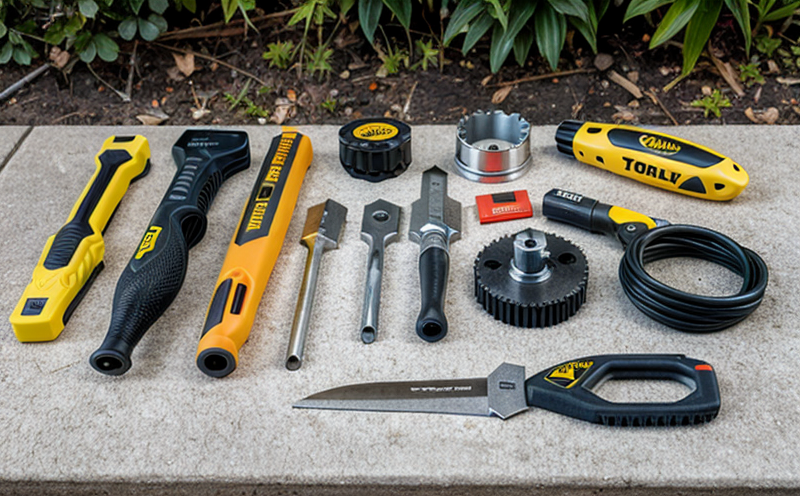UV Resistance Testing of Plastic Tool Components
Understanding the impact of ultraviolet (UV) radiation on plastic components used in DIY tools is crucial for ensuring product durability and safety. UV resistance testing evaluates how well these materials withstand exposure to sunlight, which can degrade their chemical structure over time. This degradation can lead to reduced performance, color fading, and even structural failure, especially when exposed to prolonged periods of direct sunlight.
UV radiation is a significant factor in the aging process of plastic materials, particularly those used in outdoor applications such as DIY tools. It initiates free radical reactions within the polymer chains, leading to cross-linking or chain scission. This can result in reduced flexibility and increased brittleness, ultimately affecting the tool's functionality and lifespan.
Our UV resistance testing service is designed to simulate real-world conditions using advanced equipment that replicates the effects of sunlight exposure. By subjecting plastic components to controlled UV radiation, we can assess their ability to maintain mechanical properties over time. This includes tensile strength, impact resistance, and flexibility.
The test procedure typically involves placing specimens in a specialized chamber where they are exposed to simulated sunlight using xenon arc lamps. The exposure is carefully regulated based on the specific type of plastic used in the tool components. For instance, polycarbonate (PC) tools might require different parameters compared to acrylonitrile butadiene styrene (ABS).
During testing, it's essential to monitor key factors such as temperature and relative humidity, which can influence the rate of degradation. The specimens are observed for signs of discoloration, cracking, or loss of physical properties over defined time intervals.
- Customer Impact: Ensures product longevity in outdoor environments, enhancing customer satisfaction by providing tools that last longer without compromising performance.
- Safety Assurance: Prevents potential hazards associated with brittle or weakened plastic components, ensuring user safety during DIY tasks.
- R&D Benefits: Provides insights into material selection and formulation improvements for future product generations.
Quality and Reliability Assurance
The quality and reliability of DIY tools are paramount in maintaining consumer trust. Our UV resistance testing service plays a vital role in ensuring that plastic components meet stringent international standards for durability and safety. Compliance with these standards not only protects end-users but also contributes to the reputation of your brand.
ISO 18032-4:2015 provides guidelines for accelerated weathering tests on plastics, which form a critical part of our testing protocol. By adhering to this standard, we ensure that our test results are reliable and comparable across different materials and environments. This consistency is crucial for quality assurance departments within manufacturing companies.
Our service also includes detailed reports that outline the results of each UV resistance test, providing a comprehensive overview of the material's performance under simulated sunlight conditions. These reports can be used to identify areas where improvements are needed or to justify continued use of existing materials.
Customer Impact and Satisfaction
Competitive Advantage and Market Impact
In a competitive market, offering products with superior durability is a key differentiator. By incorporating our UV resistance testing service into your product development process, you can ensure that your DIY tools meet or exceed industry standards. This not only enhances customer satisfaction but also boosts brand reputation.
Competitors who do not invest in such testing may face higher rates of product failure and customer complaints, leading to potential loss of market share. By demonstrating a commitment to quality through rigorous testing, you can establish yourself as a leader in your industry.





